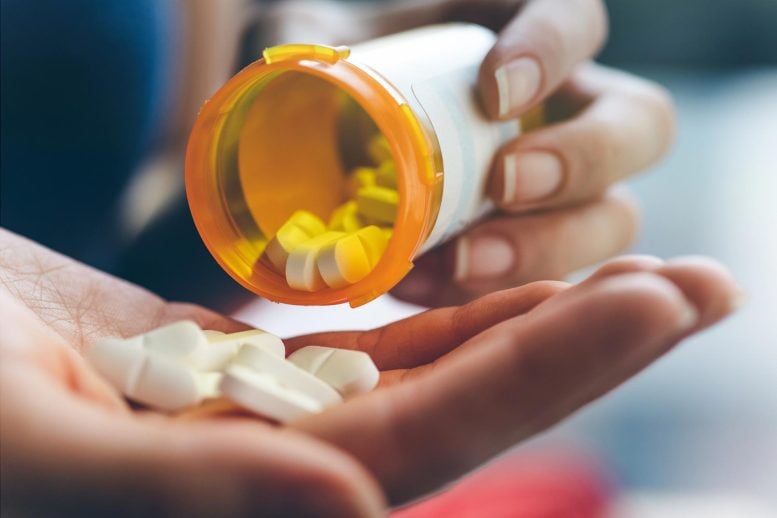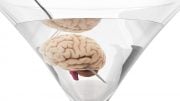
Drug and alcohol addiction is a serious and complex issue that affects millions of people worldwide. It is characterized by a strong and often uncontrollable desire to use drugs or drink alcohol, even when doing so causes negative consequences. Addiction is often accompanied by physical and psychological dependence, which can make it challenging to stop using drugs or alcohol.
A study conducted by Rutgers University found that changes in the brain can lead to a desire for drugs and demonstrated how certain insomnia medications may be able to prevent this behavior.
Researchers at Rutgers University have discovered a potential biological process for drug and alcohol addiction and believe that current treatments for insomnia could potentially be utilized to reduce or eliminate cravings.
An article recently published in the journal Biological Psychiatry discusses the findings of researchers at the Rutgers Brain Health Institute and other institutions on the role of the orexin system in drug addiction. The orexin system, which regulates sleep patterns, reward pathways, and mood, has been found to drive drug-seeking behavior. It has been observed that many drugs of abuse increase orexin production in both human and animal brains, and blocking this system can reverse addiction in animals. In addition, a separate study has shown that one of the three FDA-approved insomnia medications that block orexin can reduce opioid cravings in human subjects.
“There’s still much to discover about how orexin drives drug craving, but we know more than enough to justify testing orexin antagonists in clinical trials as addiction treatments,” said Gary Aston-Jones, coauthor of the review and director of the Brain Health Institute. “We’re applying for funding from the National Institutes of Health and looking to hire a physician-scientist with clinical trial experience to lead these efforts.”
The review, which draws on more than a decade of publications from researchers at Rutgers and peer institutions, suggests that orexin spurs drug craving and, thus, motivation to procure a drug.
Under normal circumstances, many orexin-producing cells in the brain turn orexin production on and off in ways that raise and lower motivation. These cells turn on when, e.g., people face a tight deadline and need to get work done and turn off at night to enable sleep. However, when people become addicted to opioids, cocaine, alcohol and other substances, these cells increase orexin production but no longer turn it off. They stay on constantly, producing high levels of orexin that motivates one behavior: getting another hit.
Controlled studies of mice, rats, zebrafish and other animals have allowed researchers to systematically examine each step in the process. Postmortem analysis of brain tissue from people who used heroin shows the same increase in the human orexin system that researchers have observed in addicted animals. Once triggered, this overactivity may last forever – indeed, the research team observed increased orexin levels in cocaine-addicted rats that stayed sober for more than a quarter of their natural lifespan.
Earlier research into orexin’s sleep-blocking effects spurred the creation of anti-orexin insomnia medications, three of which have been approved by the U.S. Food and Drug Administration (Belsomra, Quviviq and Davigo). As orexin’s role in addiction has emerged, researchers have tested these medications as addiction treatments, mostly in animals. Research at Rutgers has found that low doses of one of these medications can reduce drug-seeking behavior in rats without sedating them or impairing cognitive function. Moreover, a recent study from Johns Hopkins University showed that this medication can reduce cravings in people detoxifying from opioids.
“There’s obviously no guarantee orexin antagonists will effectively treat addiction, but our research gives us good reason for hope,” said Morgan James, coauthor of the review and a professor of psychiatry at Rutgers Robert Wood Johnson Medical School. “And the need for effective treatments is enormous. Overdose deaths have skyrocketed past 100,000 a year and existing treatment options have limited efficacy.”
Reference: “Orexin Reserve: A Mechanistic Framework for the Role of Orexins (Hypocretins) in Addiction” by Morgan H. James and Gary Aston-Jones, 1 July 2022, Biological Psychiatry.
DOI: 10.1016/j.biopsych.2022.06.027









This sounds like something that could help me. I would be willing to be in the first trial.
Hi my is Boulognei use to have insomnia but I don’t use drugs I need some advice
I’d be willing to try this also as I’ve tried others that haven’t lived up to their promise. Such as methadone that durg is worse than heroin.
I would be more than willing to be a part of this test! I want to be rid of opioids for good!! I’ve been on methadone for over 3 years and was coming off, but then this fentynal showed up and I sadly caught a habit, the anxiety is worse than ANY withdrawal from heroin, or methadone and although I want off, I’m scared to death of the withdrawal I’ll go through! Before my realization of being addicted to heroin, I’d sleep through the withdrawal so I didn’t know I had a habit… oh I need this study to work!
Count me in. Perhaps the FDA can issue an emergency use authorization and speed this trial process up, these trials can take 10 years and we can’t wait that long.
Currently on buvidal inj (30 years addictive addiction) it’s hard. This would be super and I would be a welcome participant in an upcoming trial. My reward pathways etc in my brain need to be wiped.
Addiction is existing not living.
I just want an ordinary life where I’m not constantly thinking about h.
I believe that there needs to be a emergency government funded program put in place and run by experienced doctors and addiction specialists, that with medication like suboxone, therapy, and exercise among other factors that will be a focused treatment program for our nations addicted. Maybe if we put some of the money we use for Department of corrections for addiction prevention programs, and medication assisted therapy, we can prevent users from going to prison in the first place. This can be done but it will take all the resources available to us, it will also take everyone involved to come together and not be judgmental. Imagine what could be accomplished in a years time?
This article caught my attention as I have really been struggling with an insomniatic cycle of alcohol use and cessation. Just considering a personal anecdote: I consume more alcohol than I want and it started with building a cycle to blackout to get to sleep. Simply having a better sedative to possibly improve sleep,that would also have implications to reduce alcohol use. Although, I’ve never used prescription sleep medication, so I’m not familiar with how that side of things may affect someone like me.
I would like to be in the first trial I’m trying to quit opioids it’s hard ,I can’t sleep whenever I stop I’d be up for days and withdrawing to sometimes
Do some research on magic mushrooms. You’ll find it helps people quit dang near anything. Also they’re non-addictive and have fewer side effects than most PILLS doctors give you. Have a great day 🙂
Where would someone be able to get these mushrooms?
I want to know if these insomnia drugs will help meth addiction. Somebody help me, Thank you
Count me in
I’m very interested in this my Insomnia seems to be getting worse even on ambien.Sever sleep anxiety for over 30 yrs. Wonder if these would help
I would be an excellent candidate for your research. I have been addicted to powder cocaine for 20+ years. I have tried to quit so many times I’ve lost count. Please consider me when you start choosing people for your human research trials.
I currently take Seraquel for insomnia. That literally is the only thing I can take to go to sleep. I have tried literally everything on the market. It also helps with bipolar. Would this be something I could take instead of Seraquel?
I would love to be a part of these drug trials… I look forward to being able to try these new medications. I’ve suffered from OUD for going on 15 years now. I’ve tried MAT with Suboxone and am currently on methadone.
I would give ANYTHING to get this help!